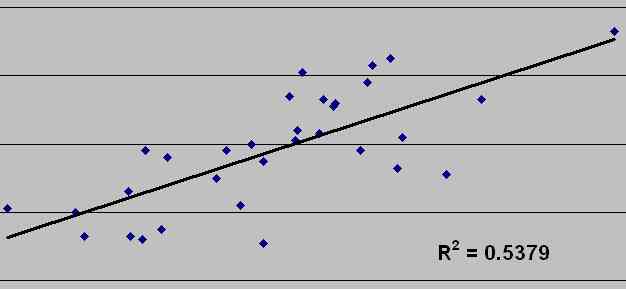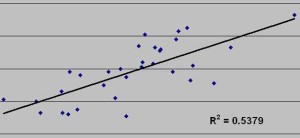Using the Science of Statistics to Select a Fantasy Kicker

Kickers are an enigma when it comes to fantasy football. One kicker might be the most accurate in the league, have the ability to consistently nail field goals from 50+ yards out, yet rank near the bottom in fantasy kicker scoring. Another kicker might lack the range, sport an erratic field goal percentage, but finish as one of the top-ten scorers in the league. So how does a person make sense of kickers? What can a team owner do to make sure their fantasy kicker is a solid one? These are questions I asked myself, and to answer them, I turned to statistics.
You’re probably yawning right now. If you’ve played fantasy football, even for a short time, you already know that statistics are everything. As a fantasy team owner, who hasn’t pored over last year’s stats when planning the upcoming season? But those aren’t the kind of statistics I’m referring to in this article. I’m talking about the science of statistics.
Now I am by no means an expert on statistics, but I do know enough to make myself dangerous. The key to answering the mystery that encircles kickers is to find a relationship between their scoring output and some other easily tracked stat. For example, wouldn’t it be nice to know that the best fantasy kickers invariably come from teams with the best running game? As you’ll soon learn, that’s not the case, but if it were, you could simply draft your kicker from a team that loves to grind out the yards on the ground.
There are many statistical tools that can be applied to make sense of the world around us, but it’s regression analysis that will show us what we want to know here. It will allow us to check the correlation between kicker scoring and an entire slew of widely varying data. Best of all, our comparisons will all be “apples to apples”. When we’re through, we will know definitively which stat is the best indicator of kicker success.
When a person runs a regression analysis, a number is generated called an r squared value. This number tells us how closely two values compare to one another. The r squared value will range somewhere between 0 and 1. A perfect correlation between two values results in a 1. No correlation at all between two values results in a 0. In the comparisons I’ve done for this article, the r squared value ranged between .5379 and .0031. It’s debatable how close to 1 an r squared value must be in order to be considered a close relationship, but that’s probably a moot point here. The important thing is to find the best relationship.
Of course, to find statistical relationships that correspond with kicker scoring, I first needed to find some plausible statistics. After some contemplation, I settled on the following stats from 2012.
- FG Accuracy. (How accurate the kicker was kicking field goals.)
- Longest FG. (What the longest field goal was for each kicker.)
- Passer Rating. (The combined passer rating of the quarterbacks on the kicker’s team.)
- Passing Yards. (How many yards the kicker’s team passed for.)
- Rushing Yards. (How many rushing yards the kicker’s team had.)
- Scoring Rank. (The rank of the kicker’s team in terms of total points scored.)
- Total Points. (Total points scored by the kicker’s team.)
- Wins. (How many regular season wins the kicker’s team had.)
After crunching the numbers, this was the result (with the r squared value in parenthesis):
- Total Points (.5379)
- Scoring Rank (.5354)
- Wins (.4149)
- Passer Rating (.2682)
- Passing Yards (.1484)
- FG Accuracy (.0373)
- Rushing Yards (.0307)
- Longest FG (.0031)

Regression analysis clearly shows a relationship between a team’s scoring propensity and a fantasy kicker’s success
As you can see, there were some interesting results. Traits that define the quality of a kicker – field goal accuracy and the ability to split the uprights from a distance – had almost no bearing on his fantasy success. The competence of a kicker’s team in running or throwing the ball had little to do with the success of a kicker either, but all else being equal, choosing a fantasy kicker from a passing team showed more promise. The biggest finding of our analysis was that the best kickers invariably come from teams with the greatest scoring proficiency and win percentage.
In summary, when selecting a fantasy kicker, choose one that comes from a team that shows the most promise to score points and win games. Of course there are always anomalies. On any given season there will probably be a handful of kickers that deviate from this rule. I.e., some kickers may excel even if they play on a poor team. But why risk trying to find an aberration? The statistics clearly show that the best fantasy kickers come from the best teams – teams that score a lot of points and win. Let your opponents take the risks. The smart choice is to go with the odds. The science of statistics won’t steer you wrong.
As always, run to daylight.
~Randy
